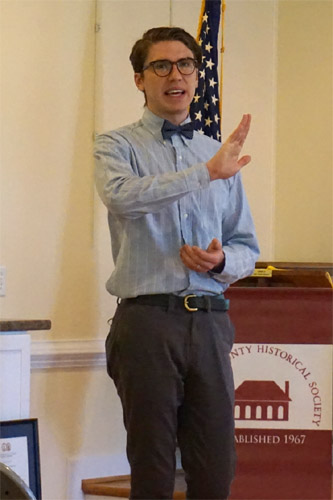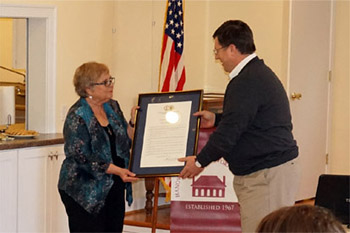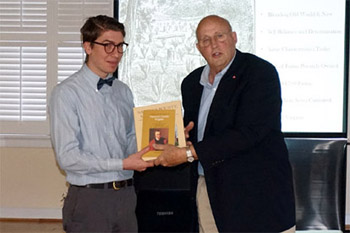 Andrew Rowand of Henricus Historical Park
|  |
25 people attended this event, in which Mr. Rowand spoke about the experience of Virginia's 17th century English settlers from an agricultural perspective.
The first English settlers coming to Virginia expected that their adventure would be similar to that of the Spanish in South America: Easy pickings with gold a-plenty, and a structured society to enlist as slaves.
Few if any considered a need to plan for the long term, and found that many tried-and-true methods of farming, and even crops themselves, didn't work in the New World. A land without roads, cleared fields or accessible beasts of burden, added to a different climate and soil than that of England, resulted in a real risk of starvation for the settlers.
The indigenous people did help the settlers with some cultivation practices, but only a lengthy period of trial-and-error revealed what worked agriculturally in Virginia. |
 |
 Hanover Delegate Chris Peace presents HCHS President Faye Wade with a framed proclamation by the legislature, commemorating the Society's 50th birthday. Hanover Delegate Chris Peace presents HCHS President Faye Wade with a framed proclamation by the legislature, commemorating the Society's 50th birthday.

Society Vice President Art Taylor presents Mr. Rowand with Society publications. |


